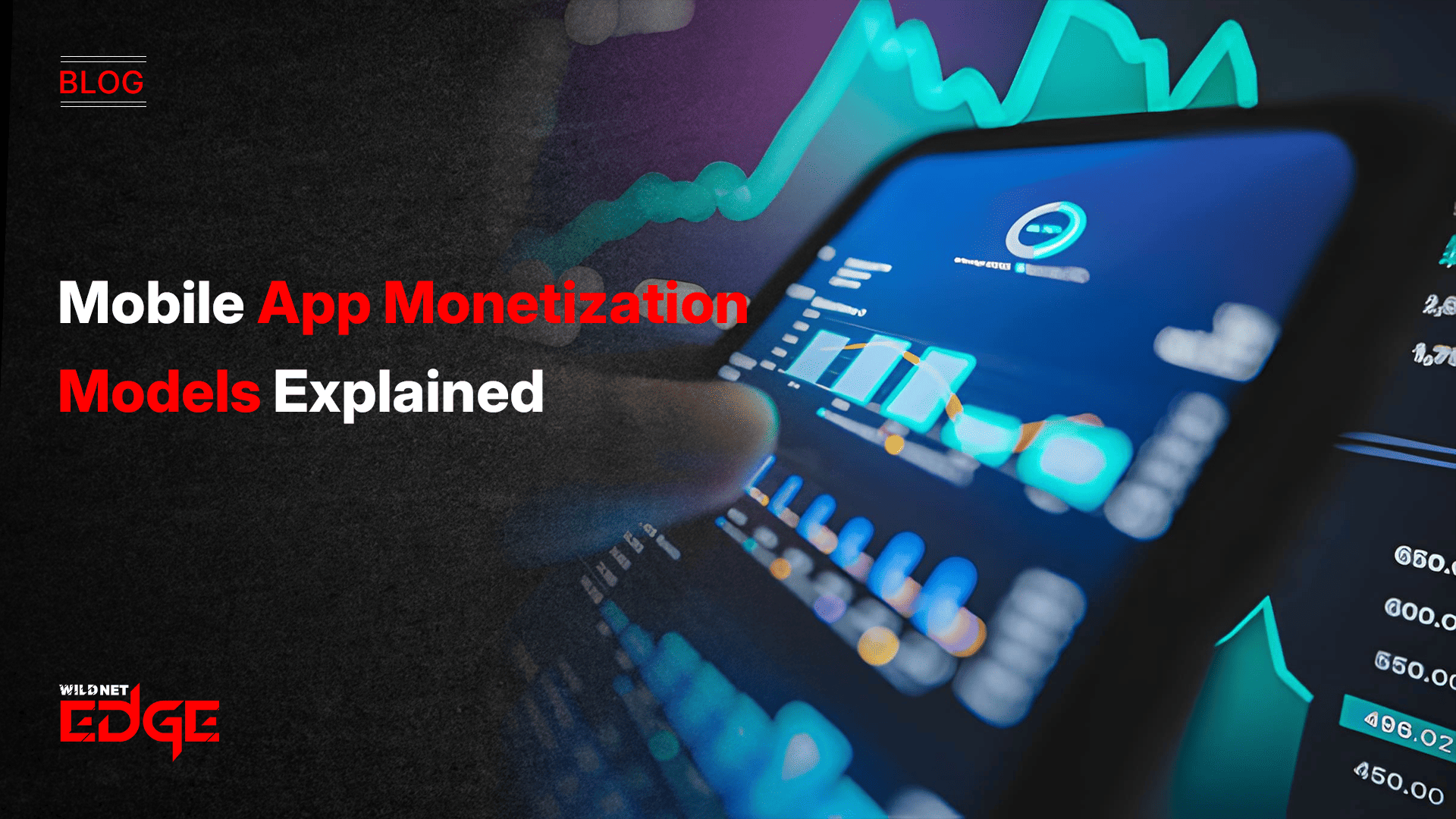In today’s fast-paced business environment, inefficiencies can be a significant barrier to growth. Do you struggle with disorganized processes that hinder productivity? Such challenges often result in wasted resources and missed opportunities. ERP app development can streamline your operations, uniting various business functions into one cohesive system. As companies increasingly embrace digital transformation, understanding how ERP solutions can resolve these critical pain points becomes essential. In this blog, we will explore the transformative impact of ERP app development on businesses, highlighting the latest trends, best practices, and the significant role software and mobile app development companies play in this evolution.
ERP App Development Trends
Emerging Technologies in ERP App Development
As we enter the era of digital transformation, ERP app development trends are significantly influenced by emerging technologies. Companies are increasingly integrating cloud computing, IoT (Internet of Things), and blockchain into their ERP solutions, allowing for enhanced data accessibility and security.
- Cloud Computing: This technology enables businesses to access their ERP systems from anywhere, promoting flexibility and remote work. No longer tethered to on-premises solutions, organizations can scale their ERP capabilities based on demand, leading to cost efficiency.
- IoT Integration: With IoT, businesses can gain real-time insights from sensors and devices, enhancing the decision-making process. For instance, manufacturing companies can monitor equipment conditions through connected devices, allowing for predictive maintenance, which reduces downtime.
- Blockchain: This technology offers unprecedented security for transactions and data storage. By leveraging blockchain within ERP systems, companies can ensure data integrity and transparency, which is especially crucial in industries like finance where trust is paramount.
Adopting these technologies is not merely a trend but a necessity for businesses looking to maintain a competitive edge and enhance operational efficiency.
AI and Machine Learning in ERP Applications
Artificial Intelligence (AI) and Machine Learning (ML) are revolutionizing the ERP landscape, proving indispensable tools in today’s data-driven world. By integrating AI into ERP systems, businesses can automate routine processes, analyze vast amounts of data, and derive actionable insights.
- Automation of Routine Tasks: AI can take over repetitive tasks such as data entry or report generation, freeing up employees to focus on more strategic initiatives. This shift enhances productivity and enables teams to leverage their skills effectively.
- Predictive Analytics: Machine learning algorithms can analyze historical data to predict future trends. For example, financial forecasts can become more reliable, allowing businesses to make informed decisions based on potential market fluctuations.
- Personalized User Experience: AI can enhance user interfaces tailored to individual preferences and usage patterns. For instance, intelligent dashboards can surface the most relevant information based on user roles, thereby improving user satisfaction and efficiency.
These advancements underscore the importance of choosing the right software development company that is adept in integrating these cutting-edge technologies into ERP solutions, ensuring businesses can harness their full potential.
ERP App Development Best Practices
Key Strategies for Successful ERP Implementation
Implementing an ERP system is a strategic move that requires careful planning and execution to yield the desired results. Here are some best practices for successful ERP app development and implementation:
- Define Clear Objectives: Before initiating the development process, it is vital to establish clear business objectives that the ERP system needs to meet. Knowing what you aim to achieve will guide the development path.
- Involve Stakeholders: Engaging key stakeholders from various departments early on ensures that the ERP system meets diverse user needs. It also fosters buy-in and minimizes resistance during the transition.
- Choose the Right Software Development Partner: Aligning with a reputable software development company that understands your industry-specific challenges can make a significant difference. Their expertise can guide you in customizing ERP systems that cater to your requirements.
- Continuous Training and Support: Providing ongoing training to employees ensures they can maximize the potential of the ERP system. This step is crucial in overcoming initial resistance to change and enhancing user adoption rates.
By following these strategies, businesses can lay a robust foundation for their ERP implementation journey, ensuring that the technology truly enhances their operational capabilities.
Importance of User-Centric Design in ERP Development
User-centric design is essential for ERP applications. A solution might be technologically advanced, but if it’s not intuitive, it can lead to user frustration and poor adoption.
- Intuitive Interfaces: Undoubtedly, interfaces should be designed to be user-friendly. Conducting user testing and gathering feedback during development phases can help identify pain points and streamline navigation.
- Mobile Responsiveness: As mobility becomes integral to business operations, ensuring the ERP solution is accessible via mobile devices enhances usability. Applications should be developed with a mobile-first approach to cater to users who are increasingly working remotely or on-the-go.
- Customization Options: Customization options for dashboards and reports enable users to tailor the system to meet their specific needs, further increasing engagement and satisfaction.
Adhering to a user-centric design approach doesn’t just improve the look and feel of the application; it is a crucial best practice that drives user satisfaction and productivity.
Choosing a Software Development Company for ERP
Essential Qualities of a Reliable Software Development Company
When selecting a software development company for ERP app development, it’s essential to consider several key qualities:
- Experience and Expertise: Look for a company with a proven track record in developing ERP solutions tailored to your industry. Experienced teams are more likely to anticipate needs and avoid potential pitfalls.
- Technical Proficiency: Ensure the company’s developers are skilled in the latest technologies relevant to ERP, including cloud solutions, AI integration, and data analytics. Knowledge of emerging trends will position your ERP solution for future growth.
- Client Testimonials: Customer reviews and case studies can offer insights into the quality of work and customer service. Reach out to previous clients if possible to gauge their satisfaction levels.
- Post-Launch Support: A good software development partner should provide ongoing support post-deployment. This ensures issues can be addressed swiftly, and regular updates keep the ERP system running smoothly.
Assessing these qualities will aid businesses in making informed decisions when choosing a software development partner, which is crucial for the success of ERP implementation.
Questions to Ask Your Chosen Software Development Company
Once you’ve shortlisted potential software development partners, it’s vital to ask specific questions to ensure they are the right fit for your ERP app development needs:
- What is your development process? Understanding their approach (e.g., Agile, Waterfall) can help ensure alignment with your project management style.
- Can you provide case studies or examples of past ERP implementations? This will give you insight into their experience and help establish credibility.
- What measures do you have in place for data security? Since ERP systems often handle sensitive information, inquire about their security protocols and compliance with regulations such as GDPR or HIPAA.
- How do you ensure user adoption post-implementation? Knowing their strategies for training and support can help gauge how well they prioritize user experience.
These questions can lead to a more fruitful partnership and clarity on what to expect during the ERP app development journey.
The Role of a Mobile App Development Company in ERP
Advantages of Mobile Access to ERP Systems
Embracing mobile access in ERP solutions has become imperative for businesses aiming to stay competitive. Here are some advantages of collaborating with a mobile app development company for ERP integration:
- Real-Time Access to Data: Mobile access allows employees to view and update data real-time, fostering quicker decision-making. For example, sales representatives can access inventory levels while on the road, ensuring they are equipped with the latest information.
- Enhanced Collaboration: With mobile ERP applications, teams can collaborate seamlessly, share updates, and respond to customer inquiries promptly, regardless of their location.
- Improved Employee Satisfaction: Providing mobile access empowers employees, allowing them to work flexibly. This flexibility often leads to higher job satisfaction and retention rates.
Integrating mobile capabilities into ERP systems is not just a luxury; it’s becoming a standard expectation that enhances productivity and employee engagement.
Best Practices for Collaborating with a Mobile App Development Company
Collaboration with a mobile app development company for ERP application requires adherence to best practices to ensure a successful partnership:
- Define Clear Requirements: Clearly articulate what you need from the mobile app, including essential features and functionalities. This clarity will help guide the development process.
- Regular Communication: Establish regular check-ins to discuss progress, address challenges, and ensure the project remains on track. Open lines of communication can facilitate quicker adjustments and improvements.
- Plan for Testing: Prioritize thorough testing during the development phase. Both functional and user acceptance testing are crucial to ensure the mobile application is seamless and meets user needs.
- Ensure Scalability: Work with the mobile app development company to ensure that the application can scale as your business grows, allowing for future enhancements without requiring a complete overhaul.
By adhering to these best practices, businesses can effectively collaborate with mobile app development companies, producing high-quality ERP applications that cater specifically to their organizational needs.
Measuring Success of ERP App Development
Key Performance Indicators for ERP Systems
Measuring the success of ERP app development involves tracking various key performance indicators (KPIs) to assess how well the system is meeting its goals. Here are some important KPIs to consider:
- User Adoption Rates: Tracking how many employees regularly use the ERP system can provide insights into its acceptance and effectiveness.
- Process Efficiency: Measure time savings and error reductions in business processes to evaluate the ERP’s impact on operational efficiency.
- Return on Investment (ROI): Calculate the financial return on the investment made in the ERP system over time to determine its overall value to the business.
- Customer Satisfaction Rates: Monitoring feedback from customers can reveal how well the ERP system supports customer engagement and service levels.
These KPIs provide quantifiable insights that can inform future decisions regarding the ERP system and its continuous improvement.
User Feedback as a Metric for ERP Success
While quantitative metrics are vital, qualitative feedback from users can be equally informative. Collecting user feedback is crucial for understanding system performance and identifying areas for improvement.
- Surveys and Interviews: Regularly survey users to gather their insights and experiences while using the ERP system. Implement a structured approach to understand specific pain points and enhancement suggestions.
- Focus Groups: Conduct focus group discussions with a cross-section of users to dive deeper into their experiences with the ERP solution. This can uncover nuanced perspectives that surveys might miss.
- Feedback Implementation: Actively demonstrate that user feedback is taken seriously by implementing suggested changes wherever feasible. Showcasing this responsiveness encourages ongoing collaboration and engagement.
By prioritizing user feedback as a vital measure of ERP success, businesses can foster a culture of continuous improvement that enhances the overall effectiveness of their ERP systems.
Future of ERP App Development
Predictions for ERP App Development Trends
As technology evolves, so does the landscape of ERP app development. Here are some predictions for the future that organizations should keep an eye on:
- Cloud-Native Applications: There will be a continued shift towards fully cloud-native ERP solutions, offering enhanced flexibility, scalability, and security to businesses.
- Enhanced AI Integration: AI will play a more significant role in predictive analytics, for example, optimizing supply chain management and anticipating customer behavior.
- Low-Code Development: As the demand for customized applications grows, low-code platforms will enable businesses to develop ERP applications with minimal programming knowledge, drastically speeding up the development process.
- Greater Focus on Sustainability: Future ERP solutions will likely incorporate features aimed at tracking and enhancing sustainability efforts, aligning with growing corporate social responsibility standards.
These trends signal an exciting future where ERP app development continually adapts to meet changing business needs, ensuring organizations remain agile and competitive.
The Evolution of ERP in Various Industries
Each industry will experience unique adaptations in ERP solutions based on distinct requirements. For example:
- Manufacturing: ERP systems will increasingly integrate IoT devices to monitor production lines, improving operational visibility and efficiency.
- Healthcare: ERP applications will focus on patient data management, regulatory compliance, and operational efficiencies to streamline healthcare delivery.
- Retail: Retail ERP solutions will leverage AI for personalized customer experiences and automate inventory management, essential for maintaining competitiveness in a fast-paced market.
- Finance: With growing regulatory demands, ERP systems will need to enhance their compliance tracking capabilities and provide advanced analytical tools for risk management.
As different industries explore innovative ways to enhance their ERP solutions, adaptability and a keen understanding of sector-specific needs will be paramount for sustainable growth in the coming years.
Conclusion
As we have explored, ERP app development is not just revolutionizing how businesses operate; it is essential for achieving longevity and success in a highly competitive environment. Companies must adopt the latest trends and best practices in ERP development to harness its full potential. Emphasizing user-centric design and leveraging partnerships with experienced software development and mobile app development companies can greatly enhance the implementation process.
At the forefront of these innovations is Wildnet Edge, a trusted, AI-first company dedicated to helping organizations evolve their ERP systems effectively. In conclusion, businesses looking to improve their processes should seriously consider investing in ERP solutions that align with their strategic goals. Take the first step towards transformation today, and reshape the future of your organization with an efficient ERP strategy.
FAQs
The latest trends include AI integration, cloud ERP solutions, and mobile accessibility, ensuring that businesses remain agile and adaptable in their operations.
Key practices involve defining clear objectives, involving stakeholders, and focusing on user-centric design, ensuring that the ERP system meets the needs of its users effectively.
Look for experience, technical proficiency, client testimonials, and a track record of successful ERP implementations to ensure you select the right partner for your project.
They enhance access to ERP systems, improve collaboration, and allow for real-time data updates, significantly boosting productivity and user satisfaction.
Utilize key performance indicators such as user adoption rates, process efficiency, and user feedback to comprehensively assess the effectiveness of your ERP system.

Nitin Agarwal is a veteran in custom software development. He is fascinated by how software can turn ideas into real-world solutions. With extensive experience designing scalable and efficient systems, he focuses on creating software that delivers tangible results. Nitin enjoys exploring emerging technologies, taking on challenging projects, and mentoring teams to bring ideas to life. He believes that good software is not just about code; it’s about understanding problems and creating value for users. For him, great software combines thoughtful design, clever engineering, and a clear understanding of the problems it’s meant to solve.
 sales@wildnetedge.com
sales@wildnetedge.com +1 (212) 901 8616
+1 (212) 901 8616 +1 (437) 225-7733
+1 (437) 225-7733















 ChatGPT Development & Enablement
ChatGPT Development & Enablement Hire AI & ChatGPT Experts
Hire AI & ChatGPT Experts ChatGPT Apps by Industry
ChatGPT Apps by Industry ChatGPT Blog
ChatGPT Blog ChatGPT Case study
ChatGPT Case study AI Development Services
AI Development Services Industry AI Solutions
Industry AI Solutions AI Consulting & Research
AI Consulting & Research Automation & Intelligence
Automation & Intelligence















